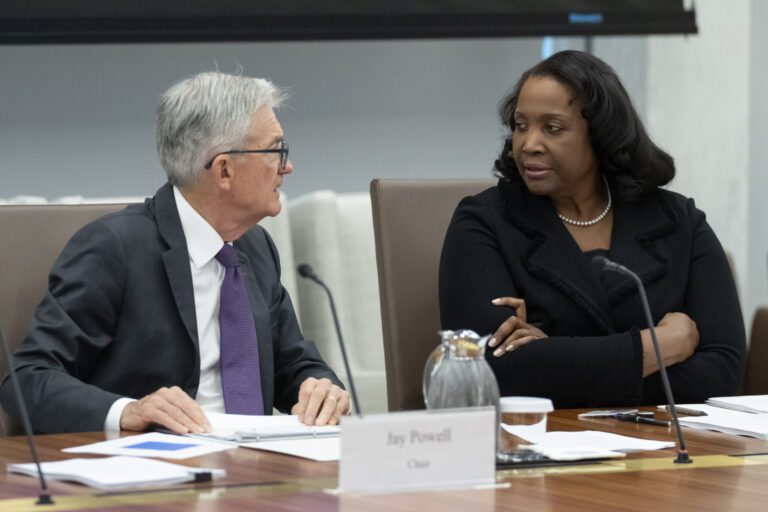Federal Appeals Court Blocks Trump’s Attempt to Fire Federal Reserve Governor Lisa Cook
A recent ruling from a Washington, D.C. federal appeals court has upheld Federal Reserve Governor Lisa Cook’s position against President Donald Trump’s attempt to remove her from the central bank. This decision underscores the legal protections in place for officials of the Federal Reserve System amidst ongoing political tensions.
Key Details of the Case
-
Background: President Trump sought to remove Ms. Cook citing allegations of mortgage fraud. However, the court found that Cook was not afforded the necessary process to respond to these claims.
- Court Ruling: In a unanimous decision, the U.S. Court of Appeals for the District of Columbia Circuit affirmed an earlier ruling by a district court, asserting that Trump’s actions lacked due process.
Judicial Opinions
The majority opinion, penned by Judge Brad Garcia, emphasized the government’s failure to provide Cook with notice of the allegations and an opportunity to defend herself, a violation of her rights under the Fifth Amendment’s Due Process Clause.
"In this court, the government does not dispute that it failed to provide Cook even minimal process — that is, notice of the allegation against her and a meaningful opportunity to respond," Judge Garcia remarked.
Judge J. Michelle Childs, also in agreement, further supported the ruling, highlighting that the district court’s conclusion regarding procedural violations was "correct."
Dissenting View
On the other hand, Judge Gregory Katsas, the sole dissenting voice in this case, contended that as president, Trump had the authority to dismiss Cook “for cause,” due to the seriousness of the alleged felony offense related to mortgage fraud.
"The President plainly invoked a cause relating to Cook’s conduct…the allegations against Cook could constitute mortgage fraud," Judge Katsas stated, underlining the gravity of the accusations.
Implications for Federal Reserve Meetings
As a result of the appeals court ruling, Lisa Cook will participate in the upcoming Federal Open Market Committee meeting, crucial for determining interest rate policies. The meeting is set to begin on Tuesday, where Fed officials are anticipated to deliberate on potential rate cuts, a topic of significant interest among economists and financial markets.
Key Points for Consideration
-
Participation in Federal Reserve Meetings: Cook’s attendance is pivotal as the committee considers monetary policy adjustments.
-
Legal Precedents: This ruling may influence how future presidents interact with Federal Reserve governors, particularly regarding their removal and related procedural rights.
- Interest Rates: Market experts are closely watching the outcomes of the upcoming meeting, as any decisions on interest rate adjustments will have wide-ranging effects on the economy.
Conclusion
The ruling by the D.C. Circuit Court is a significant moment in the ongoing dialogue about the independence of the Federal Reserve. It reaffirms the notion that political actions against appointed officials must adhere to constitutional protections. As the Federal Reserve faces pivotal decisions about monetary policy, the implications of this case will likely resonate throughout the financial landscape in the months to come.
For further details, consider exploring the Federal Reserve’s official site and recent discussions on interest rate policies across financial sectors.


